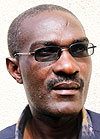In the recent past, a number of individuals and institutions have appointed themselves authorities on issues Rwandan. The Human Rights Watch, Journalists Without Borders, BBC, among others, have all been bent on exaggerating the tiniest of ripples with trumpets of a whirling maelstrom.


In the recent past, a number of individuals and institutions have appointed themselves authorities on issues Rwandan. The Human Rights Watch, Journalists Without Borders, BBC, among others, have all been bent on exaggerating the tiniest of ripples with trumpets of a whirling maelstrom.
There are statements some foreign journalists make on Rwanda with curious lacunae of astounding ignorance and lull themselves with that mantra as a knowledgeable breed. Many, with an altered state of awareness, have refused to accept that a short stay of the RPF government has translated into a long jump. Because they expected Rwanda to remain a failed state that it was prior to 1994 liberation, they refuse to accept the apparent transformations. Most of them, when they visit, try to shine their torches into corners where they expect to find dirt. When they do not find it, then they create and dump it there in their false media reports back home.
One journalist from Canada, a one David Dagan, recently while writing on his tour in Rwanda, in The Edmonton Journal, deliberately put the headline and the kicker out of context to bias the reader from the start. Wrote he; "Welcome to Rwanda, where cleanliness is mandatory” for the headline and "Pessimists wonder if spic-and-span success also sweeps democracy under the rug,” for the kicker.
Now, in what context did this Dagan use the ‘mandatory’ word? Was he trying to tell the world that cleanliness is a reserve of the West so Rwanda is encroaching on their territory? Was he sounding the usual false drums from the West that even enforcing a simple tenet of cleanliness Rwandans are ‘forced’ ‘coerced’ ‘intimidated into being clean?’ You see these are the words that they coin to paint a picture of a people with no ‘breathing space.’
If the world could put the Rwanda history, present and aspirations in context, then they would see things from a paradigm that Rwandans use to describe and define their environment, polity, economy and social fibers. Why have the Rwandan people done away with ethnic tags? You do not need to be a professor of contemporary history to answer that question. Why does the Rwandan media regulate against hate talk? Genocide was defeated, but was the ideology ‘deleted’ too? Human beings are not instinct-dominated living organisms that only react to stimuli. They have emotions, ideas, minds and personality. It may take a generation to completely wipe out the ‘hate’ thinking. As that time is awaited, should any ground, fertile or lateritic, be given to the ‘haters’ simply because an NGO will compile a report on human rights and democracy?
Why do Rwandans vote the way they do with RPF/Kagame getting over 90%? Why is the world seeing a problem in this? Put the Rwandese voting patterns in context! President Kagame recently helped a journalist from Africa Report answer his own question. The dialogue goes:
Reporter: How competitive are your elections? You won 93% in an election, doesn’t that put you up there with Gaddafi and Tunisia’s Zine el Abidine Ben Ali? Wouldn’t you rather have won a really close-fought election?
Kagame: In any country, if you divorce the conduct of elections from the context, you get it wrong. You know France; you remember when [Jacques] Chirac got 82%? Why did he get 82%? Why not 40%?
Reporter: Because he was fighting a Front National candidate and the French couldn’t bring themselves to vote for a fascist president.
Kagame: That is the context.
Bingo. Why does the world want Rwandans to vote a fascist, sectarian or genocide ideology-infested president, when they have tasted the fruits of the clean leadership that is in Kagame? Why do you think Rwandans cannot see? Rwandans are telling the world through their voting patterns what a healed man in the Bible told Pharisees who were insisting that Jesus was a sinner; "I don’t know whether he is a sinner,” the man replied. "But I know this: I was blind, and now I can see!”


